Plants ordered now will ship Spring 2026 🙂
Spilanthes, Official (Acmella oleracea) potted plant, organic
Price range: $8.50 through $57.00
Family: Aster (Asteracea)
Hardy to Zones 10 to 12, otherwise grown as an annual, 120 days to maturity
(Toothache Plant, Para Cress, Buzz Buttons, Sansho Buttons, Electric Buttons, Jambu, Szechuan Buttons, Spilanthes acmella, Spilanthes oleracea) Tropical perennial native to Brazil, grows 12 inches tall, in a mounding form. Flowers sport the characteristic bright crimson “fisheye” at the apex. Ancient, distinctively beautiful and highly entertaining plant. Traditional usage (TWM): anti-inflammatory, stimulant, tonic, dentifrice, earache, gum disease, lyme’s disease, and malaria. Plant prefers full sun and well-manured soil and plenty of water. Start early indoors and transplant out after frost. Average germ time 10 days. Space 1 to 2 feet apart.
Potted plant, Certified Organically Grown


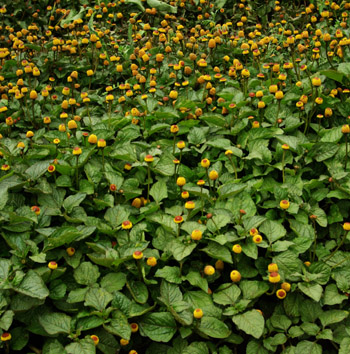

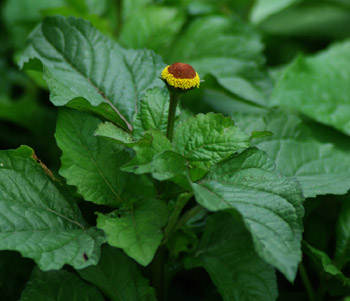
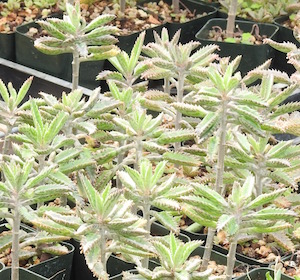
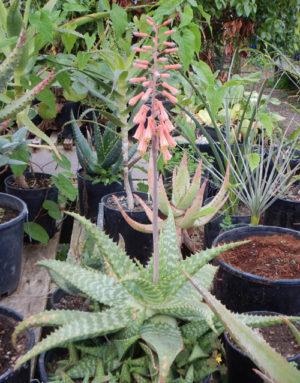
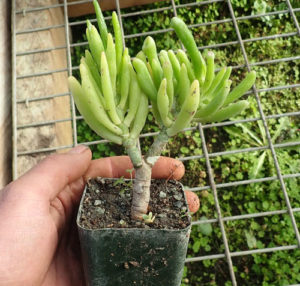
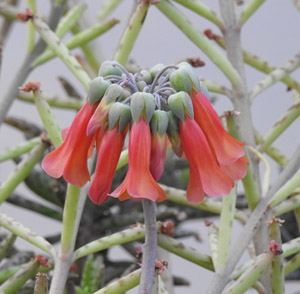
lsullivan667 –
I started the seeds inside and eventually transplanted them to a big pot. They really took off! They’ve bloomed like crazy and required minimal care; I offered them small doses of weed tea and one sprinkling of an organic granulated fertilizer. They bloomed most of the summer and are still going strong. In a large clump, they are very striking and attract lots of native pollinators plus at least one small snake who apparently felt comfortable enough to shed its skin in their pot. No time to make a tincture just yet, but summer’s not over, either! Keep up the amazing work. Love y’all’s products!
Upvote if this was helpful (0) Downvote if this was not helpful (0) Watch Unwatch Flag for removal
Marissa –
We purchased some live spilanthes plants from Strictly Medicinals in the spring of 2019. There’s this big rave event that happens here in Las Vegas every year called the Electric Daisy Carnival, so we were especially curious about this plant. Patiently we waited until the first buds appeared and then began to bloom, and when the first two flowers turned mostly yellow we hastened to learn about the big party’s namesake. What a surprise! Non-acidic electric sensation that lasts a few minutes…love it or hate it, every visitor to our garden immediately wants to share this plant with their friends. It has brought a lot of fun to our home!
The specimen that is in the shade is producing slow, lanky growth..but we like to be conservative with summertime exposure when growing something new in the desert. The plant that gets full afternoon sun is thriving and now in August is one of the most vigorously growing plants on the property. A little burning around the edges of leaves during the 115+ days.
Upvote if this was helpful (7) Downvote if this was not helpful (0) Watch Unwatch Flag for removal
Admin Richo Cech –
Thank you for this informative and positive post. Most of us just want to hold the bud in our mouth–chewing is borderline hazardous! The alkylamide reaction has been shown to be less immune-enhancing and more antiinflammatory. This helps explain how the plant tightens oral mucosa and fights infection. r
Upvote if this was helpful (3) Downvote if this was not helpful (0) Flag for removal
James –
Every single seed germinated and produced healthy spilanthes plants! They were a hit with my younger brothers as they enjoyed chewing the flowers.They grow quickly and the more your harvest the faster they grow! They stick low to the ground and spread pretty far. They seemed to take a dry spell pretty well, I harvested the seeds from last season and just placed them in a starter. The second generation is taking off just as quickly as the seeds that I purchased from this site. Expect them to germinate quickly (~72 hrs for first leaves).
Upvote if this was helpful (0) Downvote if this was not helpful (0) Watch Unwatch Flag for removal
Admin Richo Cech –
Hi James, Thanks for the constructive comments, we appreciate it. Spilanthes is an ancient plant that has proven its ability to survive and thrive. We first started offering this in our little seed catalog in 1988 and people caught on fast. Richo
Upvote if this was helpful (0) Downvote if this was not helpful (0) Flag for removal
Andrew –
Love this plant and have grown and shared it for a few years now. Everyone who experiences it is impressed. I am making a tincture with it and noticed the dried buds from this year have a slight fishy undertone. I have a tincture from two years ago that after drying with a topical skin application had the same fishy smell. The flavour is still pure though and unaffected. I initially thought my old tincture went bad but now that I noticed the same smell in the new plant I am wondering if this is a characteristic of spilanthes or if something else is going on. Any thoughts? Either way I will keep growing and using this incredible plant! Thanks!
Upvote if this was helpful (0) Downvote if this was not helpful (0) Flag for removal
Admin Richo Cech –
My thought is that the dried buds do not make the same tincture as the fresh buds, and that you would be happier with processing the plant in the fresh state. I’ve never noticed a fishy smell in fresh plant tincture. I dispensed some for my wife, who is using it for her gums (vs the dentist who recommended bleach!) yesterday, year-old tincture–still perfect. r
Upvote if this was helpful (2) Downvote if this was not helpful (0) Flag for removal
Laarni –
Andrew, I know what you mean about the “fishy” smell. I think maybe it is a characteristic of spilanthes. There’s a certain salty-smell (and taste too) to it that does borderline fishy, or to me, fish-saucy. I don’t mind it at all and think of it as a umami-like property. I’ve cooked with it (in a dish called mapo tofu) and it does give the dish a certain subtle, salty, effervescent aftertaste… I absolutely love this herb.
Richo, is the African variety invasive? I live in Hawa’i and would have to bring something that will get out of hand. I’m really curious about that variety thou as i’ve grown the other two.
Upvote if this was helpful (0) Downvote if this was not helpful (0) Flag for removal
Richo Cech –
Hello Laarni, I have to let you know that I am the worst person to ask about “invasiveness” of plants. I just don’t go with it. People are invasive, plants are trying to heal our errors. The African spilanthes spreads unobtrusively through the grasses in cool, moist environs. When cool, moist environs run out, so does the Kenyan Spilanthes. I think you could grow it in garden edge in Hawaii.
Richo
Upvote if this was helpful (3) Downvote if this was not helpful (0) Flag for removal